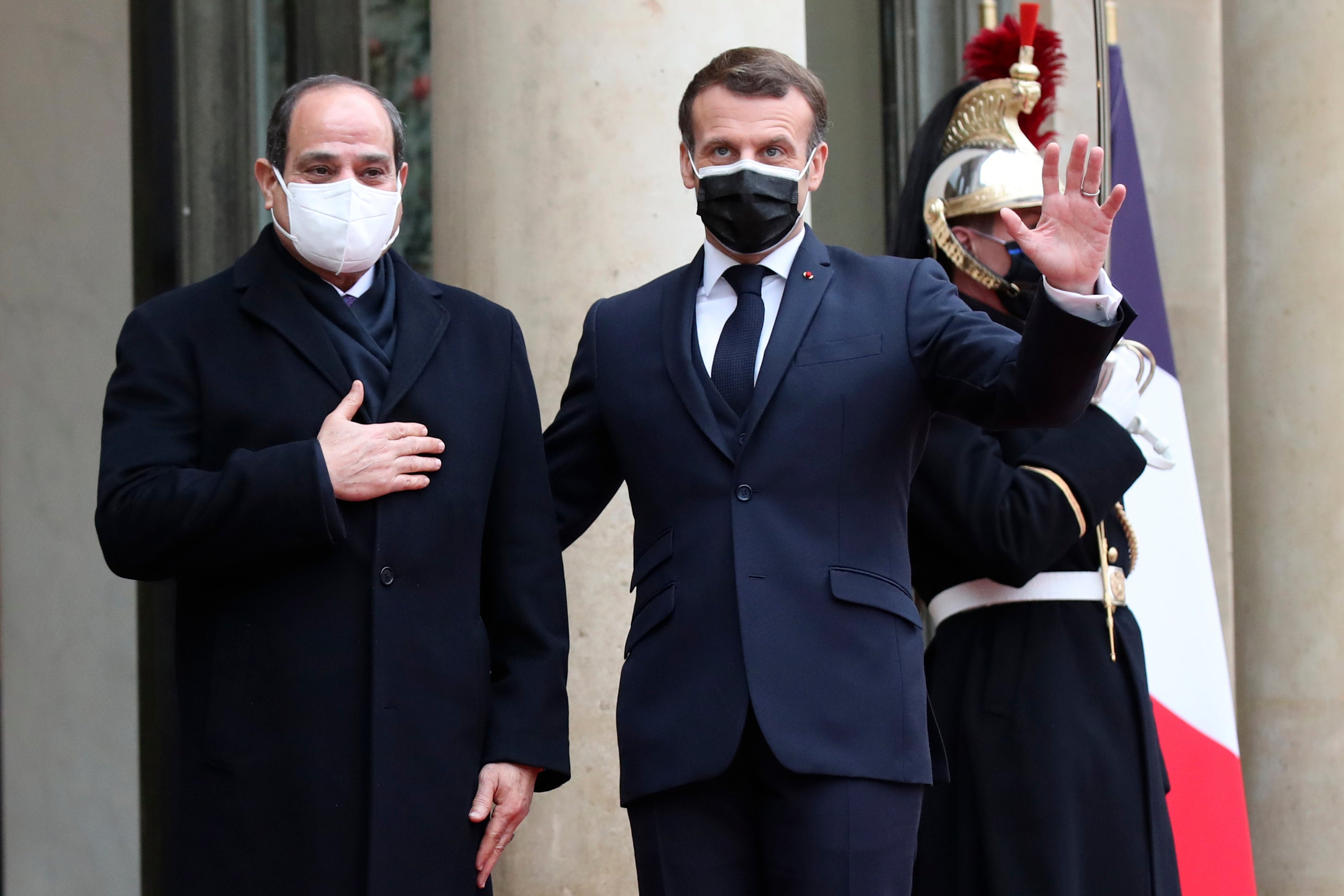Egypt's El-Sissi pays state visit to France; activists angry
Egypt's president is paying a state visit to France for talks on fighting terrorism, the conflict in Libya and other regional issues

Your support helps us to tell the story
From reproductive rights to climate change to Big Tech, The Independent is on the ground when the story is developing. Whether it's investigating the financials of Elon Musk's pro-Trump PAC or producing our latest documentary, 'The A Word', which shines a light on the American women fighting for reproductive rights, we know how important it is to parse out the facts from the messaging.
At such a critical moment in US history, we need reporters on the ground. Your donation allows us to keep sending journalists to speak to both sides of the story.
The Independent is trusted by Americans across the entire political spectrum. And unlike many other quality news outlets, we choose not to lock Americans out of our reporting and analysis with paywalls. We believe quality journalism should be available to everyone, paid for by those who can afford it.
Your support makes all the difference.Egyptian President Abdel-Fattah el-Sissi was meeting Monday with French President Emmanuel Macron for talks on fighting terrorism, the conflict in Libya and other regional issues as part of a state visit to France, amid criticism from human rights groups over the Egyptian leader s crackdown on dissent.
Macron welcomed el-Sissi at the Elysee Palace, and is expected to raise human rights concerns among the other topics on the agenda, according to Macron’s office. A joint news conference was scheduled at midday.
El-Sissi has overseen the largest crackdown on critics in Egypt in living memory, jailing thousands of Islamists along with pro-democracy activists reversing freedoms won in the 2011 Arab Spring uprising, silencing critics and placing draconian rules on rights groups.
Over 20 human rights groups have denounced in a joint statement France’s strategic partnership with Egypt as the North African country “is abusively using counter-terrorist legislation to eradicate the legitimate work in favor of human rights and suppress all peaceful dissent in the country.”
They called for a demonstration on Tuesday near the National Assembly in Paris.
Days before El-Sissi's arrival in France, amid pressure from U.N. and Western activists, Egyptian authorities released three workers with one of the last rights groups still functioning in Egypt. The three staffers of the Egyptian Initiative for Personal Rights, who were detained in November following a meeting with diplomats from Western countries, were released Thursday pending an investigation into charges of belonging to a terrorist group and spreading false news.
During his 2019 visit to Cairo, Macron publicly stated that "things did not go in the right direction” in Egypt, as “bloggers, journalists and activists” were being jailed.
El-Sissi often warns that his tough hand ensuring stability is necessary, pointing to war and destruction in Syria, Yemen and Libya as the alternative.
Egypt is a U.S. ally and has deep economic ties with European countries. French authorities see Egypt as a key country in efforts to stabilize the troubled region, and Macron has warned that in the absence of Western support, Egypt could turn to the West’s authoritarian rivals China and Russia.
Egypt has concluded several arms deals with France since 2015, including the purchase of two French-made Mistral-class helicopter carriers and two dozen French Rafale advanced fighter jets.
El-Sissi, as a defense minister, led the military’s 2013 ouster of a freely elected but divisive president. He was elected in 2014 and, and won a second term in 2018, running virtually unopposed. Last year, constitutional amendments approved in national referendum, allowed him to stay in power possibly until 2030.
______
AP Writers Angela Charlton in Paris and Sam Magdy in Cairo, Egypt, contributed.